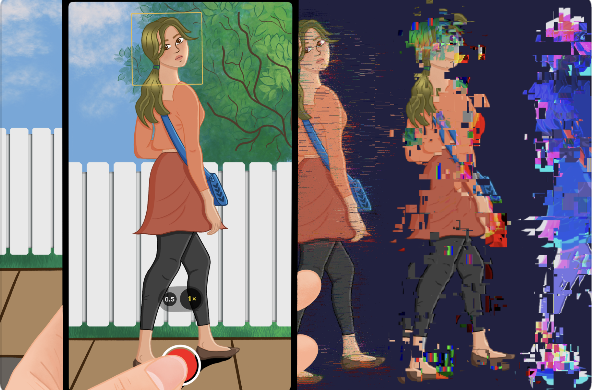CSW69: A Critical Moment for Gender Equality
As Women At The Table, we were proud to be part of the 69th session of the Commission on the Status of Women (CSW69) which marked a watershed moment as it coincided with the 30th anniversary of the Beijing Declaration and Platform for Action.
The CSW69 sessions produced a Political Declaration reaffirming commitments to women’s rights and gender equality with some incremental gains instead of a feared regression. Our participation spanned across multiple sessions, bringing and emphasising Feminist Perspectives within Digital Spaces:
AI & Digital Technology: Building an Inclusive Future
Our virtual w@tt CSW69 panel, co-organized with 100 Women @Davos, brought together Dr. Anino Emuwa (100 Women @Davos / Avandis Consulting), Caitlin Kraft-Buchman, Prof. Salma Abbasi (eWorldwide Group), Patrice Wellesley-Cole (Graduate Women International), and Monica Maghami (Regulatory GreenTech and AI Lawyer). The discussion proposed policy actions and strategies for closing the gender gap in AI and digital technology, focusing particularly on building inclusive AI, leveraging it to develop public digital infrastructure, job creation, and skills building.
‘Applying a Gender Lens to the UNGPs in the Digital Age’
The Office of the United Nations High Commissioner for Human Rights (OHCHR)’s B-Tech collaborated with w@tt, Derechos Digitales, Association for Progressive Communications (APC), and Equality Now on a closed workshop to discuss the briefing paper: “Applying a gender lens to the implementation of the UNGPs in the digital age.” This important consultation focused on practical tools and guidance to tech companies on gender from a human rights perspective.
AI for Social Equality
w@tt, APC, Derechos Digitales, IT for Change, and Pollicy co-organized a side event exploring how algorithm design impacts gender, race, class, and caste, looking for ways forward for technology that truly serves everyone. Eleonore Fournier-Tombs, head of Anticipatory Action and Innovation at United Nations University and Research Lead for the UN’s High-Level Advisory Body on Artificial Intelligence, provided a landscape overview before joining panelists Karla Velasco Ramos of APC and Sophie Carol Wanyenze of Queer Women Leaders Uganda, with Caitlin Kraft-Buchman moderating the discussion.
UNDC’s Digital Spotlight Event on Gender Equality
As part of the United Nations Development Coordination (UNDC)’s Digital Spotlight Series for UN entities, w@tt / <A+> Alliance for Inclusive Algorithms participated with UN Women and the United Nations Population Fund (UNFPA) in a Gender Equality and Digital Transformation session, with w@tt delivering a presentation on Investing in Feminist Technology and Innovation.
Accelerating Gender Equality in the Digital Age
w@tt joined forces with ITU, the World Summit on the Information Society (WSIS), the Governments of the Netherlands and Norway, UN WOMEN, the Food and Agriculture Organization (FAO), BBVA Microfinance Foundation, and WomenVAI for this official side event at CSW69. The event focused on leveraging the WSIS+20 milestones to accelerate gender equality in digital spaces. We highlighted how current digital infrastructure often perpetuates gender biases and proposed concrete strategies to build more inclusive digital ecosystems. Participants discussed the urgent need for gender-responsive digital policies, increased funding for women-led tech initiatives, and better representation of women in technology governance.
Digital Gender Mainstreaming
This powerful collaboration between w@tt, ITU, WSIS, the Governments of Switzerland and the United Kingdom, International Gender Champions, and the United Nations Development Programme (UNDP) tackled the critical issue of digital gender mainstreaming. Our representatives contributed expertise on how to embed gender equality considerations into every aspect of digital governance, policy, and implementation. The discussion addressed persistent challenges in ensuring digital literacy reaches women and girls in underserved communities, strategies for gender-responsive digital government services, and frameworks for evaluating the gender impact of digital policies.

